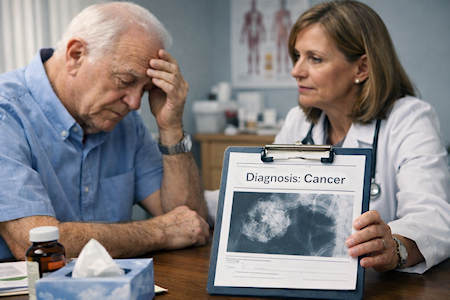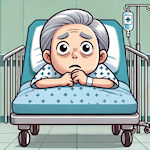- Improving lives since 2002
- Fast, Friendly Service
- Free Nutritional Counseling
The key to health is eliminating toxicities and deficiencies! - Dr. William R. Kellas
Welcome — you’re in the right place.
These pages aren’t built to impress you with information. They’re built to give you clarity and momentum — the kind that turns into real results.
Your health is the foundation of everything you do, feel, and become. So we made this library practical, science-first, and usable — not fluffy, not overwhelming.
Here’s what you can expect from every topic page:
Most people drift into a long, slow decline and call it “normal aging.” It doesn’t have to be that way. You can choose a different path — and we will help you choose your best path.


Imagine owning a high-performance machine. It runs beautifully — until small maintenance delays start stacking up. A skipped oil change becomes an overheated engine. A minor rattle becomes a breakdown on the side of the road. Not because the machine was poorly built… but because the system that creates power was ignored.
Now consider this: your most important “machine” is your physical body.
Your body is the delivery system for everything you care about — your thinking, your work, your relationships, your purpose. It’s not just a vessel. It’s the source of your capacity to live, breathe, enjoy, and accomplish. And when the fundamentals slip, life doesn’t just feel “a little harder” — it quietly becomes smaller: less energy, less patience, less momentum, less resilience… less you. And if the slide goes on long enough, eventually: no you. Not as fear — as clarity. That’s why these pages focus on simple fundamentals that restore capacity — and compound over time.
Start giving your body what it has been asking for: real food, real rest, real movement, and regular renewal. These aren’t “health trends.” They’re the operating requirements of a human engine.
Neglect rarely looks like “sabotage.” It looks like “no big deal,” “I’ll handle it later,” or “that’s just part of aging.” It looks like a thousand tiny decisions that barely register. And that’s the trap: the consequence is delayed. If every postponed walk, every ignored signal, every “later” from the last 5,000 days landed in one moment, you wouldn’t call it “busy.” You’d call it what it is — your life getting smaller — your freedom shrinking.
So remember: what you put off today becomes what you live with tomorrow.
Your health fuels your contribution, your relationships, your freedom, and your legacy. With good health, life is simply easier. Without it, even “small” plans demand more effort than they should — and you start adjusting your life around what you can tolerate instead of what you actually want.
The maintenance you skip doesn’t disappear — it stacks. Sooner or later, the price shows up as reduced energy, weaker strength, lower confidence, and fewer choices. But the hopeful side is just as real: small, consistent support stacks too — and it can restore momentum, resilience, and capacity far beyond what most people expect.
Most people wouldn’t ignore a flashing dashboard light. But with our bodies — when early signals show up as poor sleep, low energy, brain fog, aches, or digestion that feels “off” — we negotiate with them. We normalize them. We postpone them. We tell ourselves, “I’ll deal with it later.” Later is usually the most expensive time to start.
Start while the signals are small. This is the easiest moment you’ll ever have to change the trajectory. Not with perfection. With attention. With maintenance. With a decision you stop debating: I’m going to do this. I’m going to maintain my health.
Health isn’t about guilt. It’s about keeping the engine tuned, the systems supported, and the whole vehicle road‑ready — so you can live the life you intend to live.
“For of all sad words of tongue or pen, the saddest are these: ‘It might have been.’”
– John Greenleaf Whittier

After either a car breakdown or a health scare — when either your car or body suddenly says “I can't keep going” — the instinct is universal: find help fast. A mechanic, a doctor... a quick fix. a reason.
And almost everyone asks the same question: “Why is this happening to me?” It’s human. But that question rarely produces better results.
A more useful question does:
“What is my body signaling right now?
And what do I change — starting today — so this doesn’t repeat?”
We will help you answer those questions in a way that gets you the results you want. So, stick with us.
Most people don’t fail because they don’t care. They fail because health advice is noisy, contradictory, and exhausting. So we do the opposite: we simplify, prioritize, and help you build momentum.
Here’s what “turnaround” means on this site:
If you want the shortest path to better health, start with the fundamentals and build from there. You’ll leave each topic page with clear next steps you can use immediately.
<< Pop Up 1 - Enter Your Content Here >>
<< Pop Up 2 - Enter Your Content Here >>
Copyright 2002 - 2026. All rights reserved.
These statements have not been evaluated by the Food and Drug Administration. No product mentioned herein is intended to diagnose, treat, cure or prevent any disease. If you are pregnant, nursing, taking medication, or have a medical condition, consult your physician before making any lifestyle change, including trying a new product or food.
The information on this website is intended as a sharing of knowledge and information from the research and experience of the Healthy-Living.Org staff and contributors. It is not intended to replace a one-on-one relationship with a qualified health care professional and it is not intended as medical advice. You should not use the information on this site for diagnosis or treatment of any health problem or for modification of any medication regimen. You should consult with a healthcare professional before starting any diet, exercise or supplementation program, before starting or discontinuing any medication, or if you suspect you have a health problem. You should keep in mind that cited references to ongoing nutritional scientific study are most likely not accepted by the FDA as conclusive. These references and mentions of benefits experienced by others are disavowed as product claims and are only included for educational value and as starting points for your own research. No food or supplement can be considered safe for all individuals. What may benefit 999,999 of a million people may harm you. Therefore, no one can take responsibility for your health except you in concert with your trusted health professional.